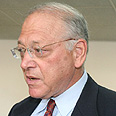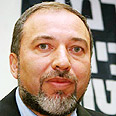



The system of government and the election of the legislative and executive authority is regularly criticized, especially lately, when the feeling the leadership is detached from the people is more ubiquitous than usual. Israel is currently run by a parliamentary system by which the prime minister is the candidate who manages to unite the most elected officials around him.
The plurality of parties has become a defining symbol of Israeli politics, and despite the fact that some argue that it is the essence of democracy, in action it is difficult to remember when the last time a government survived a full term under this system.
Reichman: Learn from the Dutch
Professor Uriel Reichman, an Israeli lawyer and founder of the Interdisciplinary Center Herzliya and almost a Kadima MK, notes that after years of the parliamentary system, it was decided to try direct elections, but with no success.“Direct voting underwent great distortions during legislation. It turned out that there was the difficult effect of split votes. The direct vote accelerated the split. In fact, the new system wasn’t effective,” he said.
Reichman believes the best method for Israel is that used in Norway, Holland and even England, where the head of the largest party is the prime minister. “The cabinet appoints no less than eight and no more than 14 ministers. The cabinet is presented to parliament, but the prime minister doesn’t need its confidence. It can just start working.”
Reichman also suggests a number of additional amendments: Raising the vote threshold required to win a seat to three percent, to maintain representation of many social sectors, and opening up party primaries to the general public: “The aim of this would be first of all to establish stability. It would narrow the number of parties to seven or less, and would make central blocs of Left-Center, Right-Center, 1-2 Arab parties, 1-2 Orthodox parties and one far-Right party.”
President and directorate
Professor Gideon Doron, from Tel Aviv University’s Political Science faculty, believes that the presidential system is most beneficial. “A presidential administration puts the emphasis on the executive authority and seeks checks and balance between the various authorities, in contrast to parliamentary administrations, which emphasize the representatives in parliament,” he said.“With a presidency, a representative is chosen, and he chooses his staff, like a directorate. The president is judged by his executive actions. Every so often, as set in advance, a ballot is held to vote for or against the president. In this type of administration, the executive authority can’t be toppled. The only way to change the representatives is by election,” he said.
An what about corruption? Doron believes corruption isn’t Israel's main problem. “Since we have a weak parliament and weak executive authority, the judicial authority becomes an option, and in fact, a great deal of what happens is just the exaggeration of legal justice, before conclusions are reached. Before we ruledif a man is guilty or not guilty, he’s already considered guilty,” he said.
A smart change
Behind the idea of changing the system of government stands the Israel Democracy Institute, an independent non-partisan think tank led by Prof. Arye Carmon, who recently published a book on the topic.
Thursday, members of the institute campaigned under the banner "for a smart change". Prof. Carmon (who opposes a presidential system of government but supports a gradual change in the local political system) explained: "After the previous gamble of a two-ballot vote, we need to remove another attempt at 'Russian roulette' from the agenda."
"The Israel Democracy Institute is a partner in efforts of Chairman of the Knesset's Constitution, Law and Justice Committee Prof. Menahem Ben-Sasson (Kadima) to strengthen the government," said Carmon.
"Suggestions being raised by the presidential committee led by Prof. Menahem Megidor mesh nicely with MK Ben-Sasson's efforts, and indicate a direction in which we need to continue to go. The Institute's research for the past 15 years is the basis of those suggestions."
"Institute experts underscore the need for a sound voting method, improved professional infrastructure of the Knesset, structural changes in government functioning and, most importantly, steps towards restoration of the public's trust in the political echelon. All of these can be achieved through careful and monitored processes over time."
Advocate Erez Buganim - an expert in constitutional law, international law and EU statutes – told Ynet that the current system of government is a "failure". Nonetheless, he explained that a change must focus on the process, not only on the objective.
"A change in the government system in Israel doesn't mean waving a magic wand and healing the problems and ills of Israeli society. However, it can establish the way (to the solution), granted that it is done without political motivations or coalitional interests," he said.
"Assuming that a change in the system of government is done in the right way as a petition-free change, it could create, in a number of years, something completely different, improved and more effective government behavior, but again – this is only if the process will be right and not populist," Buganim continued.
Aviram Zino, Attila Somflavi and Moran Rada contributed to this article















